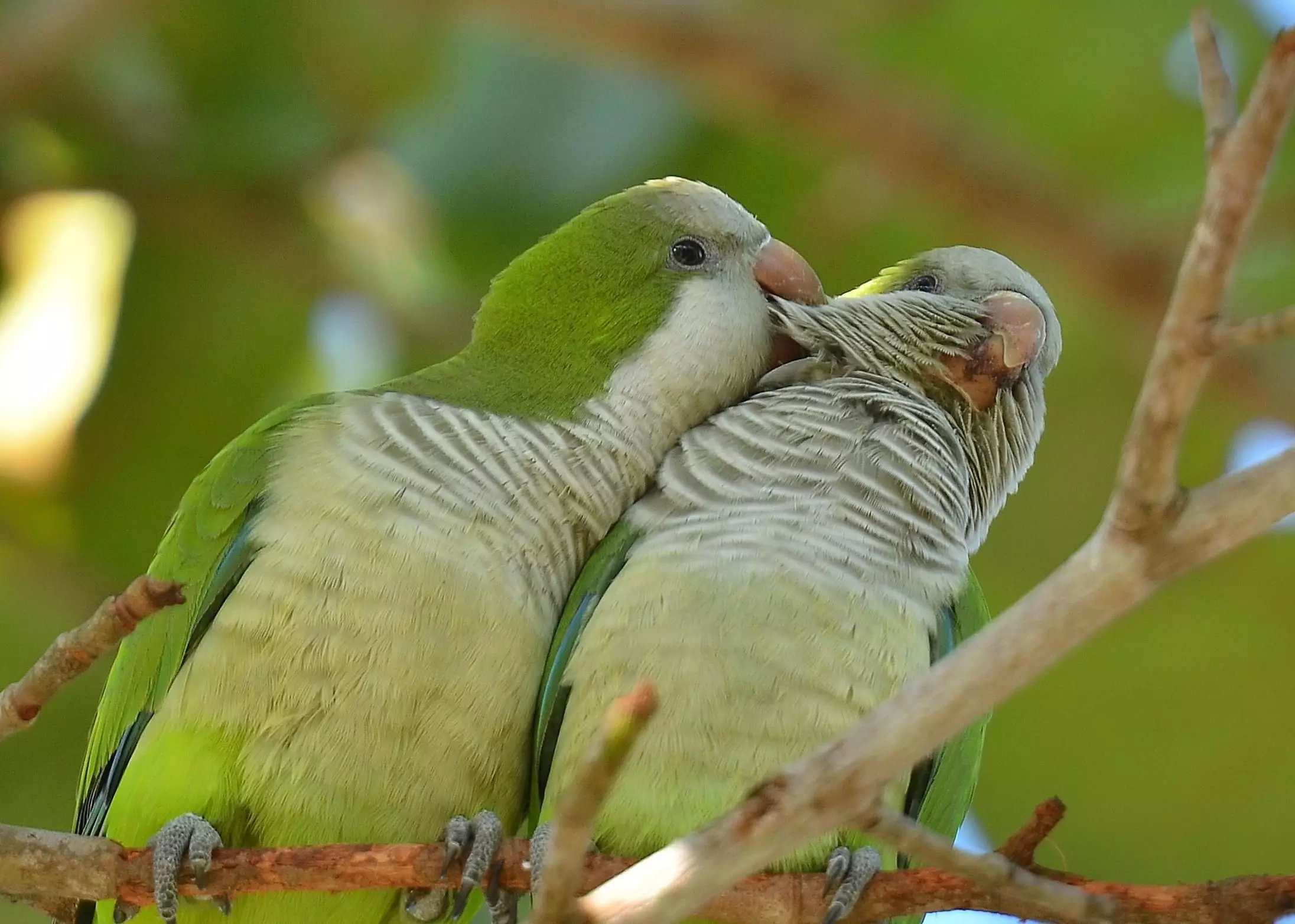Quaker parrots, commonly referred to as monk parakeets, are renowned for their engaging personalities and remarkable ability to mimic human speech. These small birds pack the playful spirit and charm often associated with larger parrots but are housed in a more manageable size. While they are a popular choice among avian enthusiasts for their interactive nature and vibrant character, potential pet owners must note that in certain regions of the United States, keeping a Quaker parrot as a pet may be illegal. Therefore, it’s prudent to check local regulations before bringing one into your home.
The Quaker parrot, scientifically known as Myiopsitta monachus, exhibits a distinctive size, growing to approximately 12 inches in length and weighing between 4 to 5 ounces. These birds are hardy, capable of living for two to three decades in captivity, often outliving even their owners. Originally from a limited range in South America, which spans regions of central Bolivia, southern Brazil, and parts of Argentina, Quaker parrots are known for their ability to forge strong social bonds.
In their natural habitats, these birds showcase an unusual behavior among parrots: they construct elaborate nests. They design these intricate structures using twigs and branches, sometimes creating elaborate communal dwellings that can be as large as a small car. This instinct to build nests reflects their social nature and preference for community living, making them an excellent choice for those looking for a lively feathered companion.
Quaker parrots are inherently social and outgoing creatures, often exhibiting an entertaining demeanor akin to that of playful clowns. They thrive on interaction and require significant attention from their owners. Their bold personality is complemented by a tendency to chatter and mimic, making them adept at developing vast vocabularies and even forming sentences. The vocal ability of these birds can be a point of contention among owners; while some find their chatter delightful, others may perceive it as overly noisy. Unlike other parrot species, Quakers typically do not produce harsh screams, which allows them to fit into various living environments, including apartments.
Moreover, their loyal nature strengthens the bond formed with their owners. Quakers often choose one person to form a strong attachment with, providing companionship and affection in return. However, as with most parrots, training and socialization are vital to prevent the emergence of undesirable behaviors. Regular interaction, along with cuddling and gentle petting, helps nurture this bond.
Creating an appropriate living environment is essential for the well-being of your Quaker parrot. They are active birds that require ample space and an enriching environment to thrive. A cage that measures at least 18 inches square is necessary, but larger enclosures are preferable to provide more room for flying and playing. Quakers are notorious for their chewed-up toys and escape artist tendencies, necessitating durable and well-constructed cages.
Moreover, their cages should be placed in areas protected from direct sunlight and drafts, as these birds are sensitive to temperature extremes. Including a birdbath within their cage can offer both entertainment and mental stimulation. It’s also crucial to remember that Quakers can display possessive behaviors over their territory, especially when they feel threatened.
The dietary requirements of Quaker parrots play a significant role in their health and longevity. A balanced diet primarily consisting of high-quality formulated pellets should be complemented with fresh fruits, vegetables, and nuts. Introducing a mix of green leafy vegetables and colorful produce is essential, while seeds should only be occasional treats due to their high-fat content. Monitoring their food intake is crucial, as obesity can lead to severe health issues like fatty liver disease.
Common health problems among Quaker parrots may stem from inadequate diets or boredom. Addressing needs for physical exercise and mental stimulation is fundamental in preventing self-destructive behaviors such as feather plucking. Providing toys and designated playtime outside the cage can significantly enhance their quality of life.
Adopting a Quaker parrot can lead to a joyful and rewarding experience filled with companionship and endless entertainment. Their intelligence, friendly demeanor, and ability to communicate make them exceptional pets. However, it is essential to commit to their care requirements, including interaction, a proper diet, and an engaging environment. Interested individuals should also consider local laws and regulations when pursuing the ownership of a Quaker parrot, ensuring they provide a safe and nurturing home for this charming species. With dedication and love, a Quaker parrot can become a cherished member of your family for many years.

